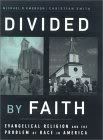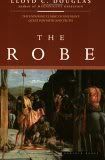I saw an interesting article today in the opinion section of the International Herald Tribune titled Thought vs. Feeling in Religion. According to the author, James Carroll from the Boston Globe, the two functions of religion are to explain life's mysteries and help overcome life's difficulties.
He explains some of the popularity of mega-churches as being the result of people looking for an "emotional boost", and "megachurch liturgies, speaking generally, are more like rock concerts than traditional worship services, and the sermons are more like pep talks than discourses." His critique is that:
In the United States, the megachurch movement is solidly aligned on one side of the culture wars. Suspicion of enlightenment assumptions, like the need for critical reading of texts or the notion of an evolving universe, is a mark of most new-breed evangelical religion. Megachurch preaching targets homosexuality and feminism. The flip side of rapture is an aggressive anti-intellectualism. The reason to oppose this American manifestation of religious enthusiasm is not just because it's bad religion: it's bad culture and politics, too.
His point in the article isn't specifically about mega-churches... he touches on liberation theology in Latin America ("The Gospel is centrally a call to justice, and poor people throughout the continent are hearing it that way... When the critical mind and unleashed emotions come together in enthusiastic religion centered on social change (we saw this in the U.S. civil rights movement), the results can be as politically transforming as they are spiritually transporting.") and critiques Pope Benedict's opposition to it, accusing him of "undermining the crucial connection between thought and feeling that keeps religion humane."
If any of y'all reads it, I'd be curious to hear your thoughts...










2 comments:
the problem i have with liberation theology is it often takes christ as a political figure who sought to restore the poor to equality with the rich. christ never attempted this. christ offered dignity and restorative religious (i use that term lightly) power to the poor but did not seek to lift them from their class. christ was not a political figure but instead repeatedly shun the title "son of david" and preferred the title "son of man." while we should seek to help the poor equality with the rich is something we should not seek attain.
Hmmm... I don't think it's necessarily what you mean, but I'd hate to follow that thought to apathetic non-action. Social justice was a concern of Jesus, I think. I don't think he would affirm the socio-economic divide we're experiencing, but I also don't think he would endorse a communist state.
Post a Comment